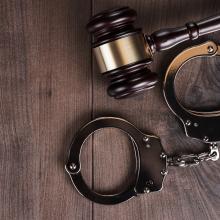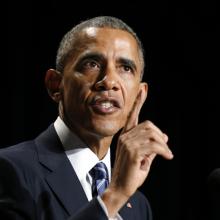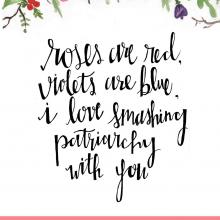Diversity
How tough is it to create a racially diverse denomination? Consider a recent luncheon organized by the Southern Baptist Convention, the nation’s largest Protestant denomination.
About 100 Nashville-area evangelical leaders accepted invitations to a lunch hosted by the denomination’s policy arm, the Ethics & Religious Liberty Commission. On the agenda: a pitch for a spring summit and a short discussion by ERLC President Russell Moore about the need for churches to become more racially diverse.
The number of African-Americans who showed up for the lunch? Four (two of them denomination employees).
ERLC leaders originally planned a summit on bioethics. They quickly shifted gears after grand juries in November and December failed to indict police officers for the deaths of young unarmed black men. Moore’s social media remarks condemning the New York City jury’s decision not to indict the officer who killed Eric Garner were met with an angry backlash, some from people filling Southern Baptist pews and pulpits.
Black church leaders are greeting news of the summit with reactions ranging from polite skepticism to hopeful support.
“Sean Penn’s ‘Green Card’ comment may have ruined the entire Oscars.”
That was the headline from the Huffington Post. I didn’t watch the Oscars, but I’m always curious about pop-culture scandals. What could Sean Penn have said that was so egregious that it threatened to ruin “the entire Oscars?”
Penn delivered the award for Best Picture, which went to Birdman. After Penn opened the card, he took an awkward moment to gather his thoughts about how he would introduce the winner, whose director happened to be his long-time friend Alejandro Iñárritu.
That’s when Penn delivered the scandalous introduction, “And the Oscar goes to … Who gave this son of a bitch his green card? Birdman.”
On a July afternoon in 1995, a 33-year-old man named Curtis Wilkerson walked into a store, stole one pair of socks, and was promptly arrested. This wasn’t Wilkerson’s first crime, but it was surprising, considering his long streak of good behavior. The last time he was trouble with the law was when he was in his teens, after two offenses for abetting robbery. He was sentenced to six years.
After his release from that sentence, Wilkerson cleaned his life up. Instead of running the streets for money, he drove a forklift. All things considered, he was a “success story,” earnestly walking that “straight and narrow” path — up until, that is, those gorgeous socks waved his way.
Why he did it remains a mystery. But since I was once an angsty teenage shoplifter, I imagine he was probably just bored. Hungry for a momentary thrill. An innocent-ish high. I imagine him thinking, it’s just a pair of socks. $2.50. Not much more than a pack of gum.
But be it socks or a Chevy Silverado, the state of California did not care. Shortly following his arrest, he was brought before a judge and sentenced to life in prison.
In California, the three-strikes law was the law of the land. A type of mandatory minimum sentencing law, the law required judges to punish defendants guilty of their third felony with 25 years to life in prison. Stolen socks, most of the time, would’ve counted as a misdemeanor. But, and likely because he was black, Wilkerson was charged with a felony, his third strike. And consequently, was given the harshest punishment in the history of stolen socks.
In 2012, California voters approved a measure to reform the law, making mandatory life sentences only applicable to “serious” felonies, but even still, Wilkerson remains behind bars.
When fans barred a black man from boarding a train as they chanted racist lyrics after the Chelsea vs. PSG match on Feb. 17, it was only the most recent in a long history of similarly egregious acts.
Professional soccer is no stranger to racism. While such acts of overt bias should anger us, they should not surprise us. Whether it's chanted slurs, especially dirty tackles, or thrown bananas, racist behaviors emerge from a racist culture.
Below are videos of six of the most infamous incidents of racism in professional soccer since 2011. It is important to remember that these acts are only the explicit tip of an implicit iceberg. These are only some of the examples captured on video.
RALEIGH, N.C. — Deah Barakat took my class “Islam in the Modern World” at N.C. State University a few years ago. He was curious about Islamic history, contemporary spiritual and political movements, and was great in class discussions. I’ve taught thousands of students in the last 11 years here, but Deah stood out for his enthusiasm, kindness, calm demeanor and obvious charisma.
Deah Barakat, Yusor Abu-Salha, and Razan Abu-Salha were the very best people. They embodied the core Islamic principle of “ihsan” — doing that which is both beautiful in itself and beautifying to the world. They volunteered to assist poor and homeless people. They planned to travel to camps in Turkey to help Syrian refugees in need. They were creative, intelligent, kind, generous. There are no words for how much we have all lost when they were gunned down and murdered in their Chapel Hill condominium last week.
Yet many insist their murders resulted from a dispute over parking. While the particular motives of the shooter cannot be determined at this stage, it is abundantly clear that these deaths were not just about parking. It is also clear the emerging discussion is about the place of Muslims in contemporary America. As we analyze the meaning of Deah, Yusor, and Razan’s murders, we are also peeling back layers of societal debates about Islam, Muslim-Americans, and the culture of intolerance and violence taking root in the U.S. On some level, it does not matter whether the shooter actually intended to kill three Muslims because they were Muslim. The public conversation is revealing several collective concerns in stark and disturbing ways.
ROME — On its 15 previous pilgrimages, the Catholic gay rights group New Ways Ministry drew maybe two-dozen people to visit holy sites in places like Assisi and Rome.
This year, the number of pilgrims unexpectedly doubled to 50.
Chalk it up to the so-called Francis Effect, where the pope’s open-arms acceptance is giving new hope to gay and lesbian Catholics who have felt alienated from their church for decades.
What’s been even more surprising is that both New Ways and a similar Catholic LGBT organization in Britain are finding support from the Catholic hierarchy in their efforts to meet the pontiff when they both visit the Vatican on Ash Wednesday, the start of Lent, the period of penance and fasting preceding Easter.
For example, Archbishop Georg Ganswein, head of the papal household and the top aide to Pope Emeritus Benedict XVI, responded to New Ways’ request for a papal meet-and-greet by reserving tickets for the group at Francis’ weekly public audience in St. Peter’s Square. It’s not a private meeting — which is tough for anyone to get — but it’s not nothing.
The 6.5 million people in the greater Houston area now surpass New York City and Los Angeles as the most racially and ethnically diverse urban area in the U.S. That's the site where a broad spectrum of U.S. church leaders met this week to consider the impact of immigration on their congregations, and on the rapidly changing expressions of Christianity within North American culture.
The group gathered at the annual convocation of Christian Churches Together in the USA, which includes the leadership of the U.S. Catholic Conference of Bishops, several Pentecostal and evangelical denominations, the Orthodox Churches, some Historic Black churches, and nearly all the major historic Protestant denominations. All of these are experiencing the impact of immigration. Most dramatically, for instance, 54 percent of millennials — those born after 1982 — who are Catholic are Latinos. Of the 44 million people living in the United States who were born in another country, 74 percent are Christian, while only 5 percent are Muslim, 4 percent Buddhist, and 3 percent Hindu.
While church leaders in the U.S. have expressed united support for the reform of U.S. immigration laws, this is the first time an ecumenical body has gathered to examine together the actual consequences of immigration on the life and witness of its churches.
After taking heat from the religious right for saying Christians and Muslims have all committed horrors in God’s name, President Obama is now angering the religious left with an upcoming White House conference on combating ”violent extremism” that seems to focus only on Muslims.
The back-to-back controversies raise the question: Can Obama — or any president — safely discuss faith in today’s political crosswinds?
No, say experts who keep a close eye on presidential God talk. It’s a perilous walk, taken without a safety net as news and social media voices wait to savage him in a nanosecond.
Obama’s remarks at the National Prayer Breakfast triggered fury when Obama mentioned the Crusades, the Inquisition and Jim Crow segregation laws as examples of Christian violence in God’s name.
“This is not unique to one group or one religion,” Obama said. “There is a tendency in us, a sinful tendency that can pervert and distort our faith.”
Black Future Month, a term coined by the new black vanguard, seeks to build upon the robust legacy of our foreparents while refusing to nostalgically rest upon their laurels. Black Future Month affirms our collective history of struggle, resilience, and achievement, while centering our present predicament in all its urgency. As this movement progresses, it’ll be imperative that we retain the spiritual foundation which anchored the freedom fighting of our ancestors,’ but this retention cannot come at the expense of passing the baton off to emerging leadership. We must go forward together, acknowledging that we need the collective wisdom of our people to navigate the troubled waters that surround us on all sides.
Black Future Month emerges from the #BlackLivesMater movement and the awareness that we’re in the midst of a watershed moment. There are currently “more African-American adults under correctional control, in prison or jail, on probation or parole, than were enslaved in 1850, a decade before the Civil War.” Black people currently constitute 12 percent of our nation’s populace, yet represent 40 percent of the nation’s incarcerated population. It’s estimated that 1 in every 3 black males will serve time in jail or prison in their lifetime and that 1 in 13 black people cannot vote due to felon disenfranchisement. As bleak as these realities are, mass incarceration is just a portion of the burden we’re bearing.
Revolutionary Love
Revolutionary love has given birth to new life.
We are gasping, breathing (I can’t breathe)
Screaming (We have nothing to lose but our chains)
We have been in the womb long enough
Blinking to the blinding light of the revolution
Our eyes adjusting
And we answer with what love looks like in public
Justice
I’ve been thinking about the life birthed out of revolutionary love. The night I met Waltrina, we stayed up until an ungodly hour — instant sister-friends. We bonded, talking about everything, about finding and losing faith — in God and humanity — then slowly picking it up again piece by piece, about being the diversity in mostly white professional spaces, about friends, family, and the struggle to find our places (as 30-somethings) in this “new” freedom movement.
Out of a deep revolutionary love inspired by Jesus and nourished from the well of our people, we have determined to get in where we fit in, living out the belief that there is a place for everyone in the movement.
Today's fight against the powers and principalities of systemic injustice cannot be left to the continued service of the elders that survived the 1960s civil rights movement, nor hoisted solely upon the shoulders of the teens and 20-somethings of today, just because they have energy and new ideas. Despite the focus on elders and youth, this is an intergenerational movement that requires all of us to answer the communal call. I am encouraged by one of my mentors, Mama Ruby (Sales) who says it is time to have all hands on deck.
The zeitgeist is clear. Much like Emmett Till’s murder in 1955 sparked the civil rights movement, the tragic string of murders of blacks in 2014 catalyzed another movement, the #BlackLivesMatter movement. This movement picks up where the civil rights movement left off, addressing systemic racial injustice in the legal and penal system, educational system, and economic system. In some ways, the battles we fight are more challenging than the ones our grandparents fought. Undeniably, we face off in a more complex world and against forms of systemic racism that are so subtle that they are almost invisible. Nevertheless, due to a unique combination of gifts and experiences, I’m hopeful that my generation of black millennials is ready to lead us on to a more equitable society. Here’s why.
1. We are propelled by the prophetic legacy of the past.
With a technological savvy that gives us unprecedented access to the true history of our people, and as perhaps the last generation to breathe the same air as the civil rights generation, we draw upon the legacies of the past as we move forward. When I sense that my capacity to forgive is waning, I recall my recent conversations with several survivors of the 16th Street Baptist Church bombing in Birmingham, Ala., and I’m reminded of the inner healing that forgiveness promises. When I am tempted to pander to the powers that be, I call my radical granddad and ask him to tell me again about the many Black Panthers meetings that took place at the church he pastored in Berkeley, Calif., in the 1960s. When I feel that I’m losing my courage, I read Ida B. Wells’ autobiography and am reminded that we are not alone. We are connected — part of a chain of black activists, each generation inspiring the next. Our heroes guide us every day.
1. How David Carr Described His Messy Relationship with Faith
“I am a man who swears frequently, goes to church every Sunday, and lives in search of faith.” New York Times media columnist David Carr died Thursday after collapsing in the newsroom. He was 58.
2. Friends of the Chapel Hill Shooting Victims Share Their Memories
In the aftermath of the shooting deaths of three Muslim students in Chapel Hill, N.C., Coming of Faith compiled stories from friends of the victims. And view a collection of moving images from the Wednesday evening vigils that brought together three rival colleges and an entire community.
3. AUDIO: 'Hello, My Name is Yusor Abu-Salha'
“Growing up in America has been such a blessing. … I feel so embedded in the fabric that is our culture. And here, we’re all one.” In May 2014, one of the victims of Tuesday’s Chapel Hill shooting recorded a StoryCorps interview with her 3rd grade teacher. Here are clips from that interview and her teacher’s reflection on Yusor’s death.
4. U.S. Slams Sudan for Blocking Darfur Mass Rape Investigation
“Speaking at a meeting of the U.N. Security Council, U.S. Ambassador Samantha Power referred to a new report by New York-based Human Rights Watch, which accused Sudanese soldiers of raping at least 221 women and girls in the village of Tabit over the course of three days. … ‘To this day, the government of Sudan has shamefully denied the U.N. the ability to properly investigate this incident,’ Power told the 15-nation council.”
5. WATCH: Things Everybody Does But Doesn’t Talk About
In case you’re not one of the 20+ million people who have already watched this clip, check out President Obama’s BuzzFeed video debut. … You know you have trouble pronouncing February too.
Preliminary police reports describe a long-simmering dispute over parking as the motive for the killings of three Muslim students at a Chapel Hill condominium Feb. 10.
But many Muslims in the Raleigh-Durham community and beyond are not so sure. The triple murders in this usually harmonious university town immediately took on a larger narrative of hate crimes against Muslims and charges of atheists baiting Muslims.
On Wednesday, police charged Craig Stephen Hicks, 46, of Chapel Hill with three counts of first-degree murder.
They allege he shot Deah Shaddy Barakat, 23, and his wife, Yusor Mohammad Abu-Salha, 21, and Abu-Salha’s sister, Razan Mohammad Abu-Salha, 19, of Raleigh inside their condominium near the University of North Carolina campus in Chapel Hill.
I cringed. Recently, I sat watching a cable news broadcast — can’t remember which one. What I do remember is it featured people doing good in the world … and it made me cringe.
Lots of people were highlighted, but the two young black people they featured both shared the same general narrative: So and so had a hard life. He came from poverty. She came from abuse or neglect. But they rose above. Now look at all they’ve accomplished. It was striking. None of the stories of white people started with this narrative. Rather, theirs usually went something like: Little Suzy or Johnny took a class project and turned it into a major non-profit that helps thousands of orphans … in Africa.
No matter where you tuned into this broadcast, blackness unconsciously was associated with hardship and overcoming while whiteness was associated with genius and compassion.
I sat there thinking: The truth is we have had centuries of hardship to press through. Our history is present, the good and the bad. As in Toni Morrison’s Beloved, the ghost of slavery haunts us. It affects our present. But it’s not just the past that haunts us. It is the same basic oppression of yesteryear —confinement, control, and disregard for black lives. So, it makes sense that the stories of our overcomers are as potent in current-day narratives as they are in history.
Jackie Robinson, Joe Lewis, Paul Robeson, Zora Neale Hurston, Billie Holiday, were the overcomers of our past. The black children in that broadcast were the overcomers of our present.
But what about the black future? One hundred years from now, will my family’s descendants still have to watch featured stories of black people doing good that always begins: So and so had a hard life?
During Black History Month we typically look back on all the accomplishments of those who paved the road for generations to come. But this month, we have been inspired by the #BlackLivesMatter movement to look forward to another kind of future for black men, women, and children.














